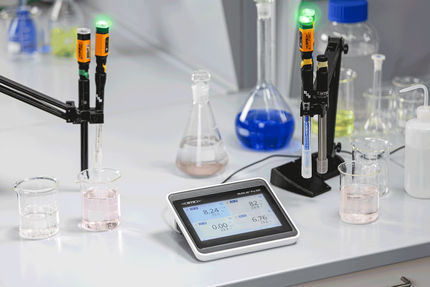Paul Jozef Crutzen (born December 3, 1933, Amsterdam) is a Dutch Nobel prize winning atmospheric chemist.
Crutzen is best known for his research on ozone depletion. He lists his main research interests as Stratospheric and tropospheric chemistry, and their role in the biogeochemical cycles and climate.[1] He currently works at the Department of Atmospheric Chemistry at the Max Planck Institute for Chemistry,[2] in Mainz, Germany and the Scripps Institution of Oceanography at the University of California. He was also a long-time adjunct professor at Georgia Tech.[3]
Awards
This is a partial list. See [1] for more.
- 1976: Outstanding Publication Award, Environmental Research Laboratories, National Oceanic and Atmospheric Administration (NOAA), Boulder, Colorado, U.S.A.
- 1984: Rolex-Discover Scientist of the Year.
- 1985: Recipient of the Leo Szilard Award for "Physics in the Publics Interest" of the American Physical Society.
- 1986: Elected to Fellow of the American Geophysical Union
- 1989: Tyler Prize for Environmental Achievement.
- 1991: Member of the Royal Swedish Academy of Sciences;
- 1995: Nobel Prize in Chemistry (with Dr. M. Molina and Dr. F. S. Rowland, U.S.A.)
- 1995: Recipient of the Global Ozone Award for "Outstanding Contribution for the Protection of the Ozone Layer" by United Nations Environment Programme.
- 1996: Honorary Member of the International Ozone Commission
- 1999: Foreign Member of the Russian Academy of Sciences
- 2002: Worldwide most cited author in the Geosciences with 2911 citations from 110 publications during the decade 1991-2001, Institute for Scientific Information
Anthropocene
In 2000, in IGBP Newsletter 41, Crutzen and Eugene F. Stoermer, to emphasize the central role of mankind in geology and ecology, proposed using the term anthropocene for the current geological epoch. In regard to its start, they said:
- To assign a more specific date to the onset of the 'anthropocene" seems somewhat arbitrary, but we propose the latter part of the 18th century, although we are aware that alternative proposals can be made (some may even want to include the entire holocene). However, we choose this date because, during the past two centuries, the global effects of human activities have become clearly noticeable. This is the period when data retrieved from glacial ice cores show the beginning of a growth in the atmospheric concentrations of several 'greenhouse gases", in particular CO2 and CH4. Such a starting date also coincides with James Watt's invention of the steam engine in 1784.[4]
Global Warming
Steve Connor, Science Editor of the Independent, wrote:
- Professor Paul Crutzen, who won a Nobel Prize in 1995 for his work on the hole in the ozone layer, believes that political attempts to limit man-made greenhouse gases are so pitiful that a radical contingency plan is needed.
- In a polemical scientific essay that was published in the August 2006 issue of the journal Climatic Change, he says that an "escape route" is needed if global warming begins to run out of control.[5]
- Professor Crutzen has proposed a method of artificially cooling the global climate by releasing particles of sulphur in the upper atmosphere, which would reflect sunlight and heat back into space. The controversial proposal is being taken seriously by scientists because Professor Crutzen has a proven track record in atmospheric research.[6]
- In October 2007, Crutzen published findings that the release of Nitrous Oxide (N2O) emissions in the production of biofuels mean that they contribute more to global warming than fossil fuels.[7]
Nuclear Winter
Crutzen was also a leader in promoting the theory of Nuclear winter.
See also
- Nuclear winter
- Global dimming
- Global warming
- Albedo
- 1991 eruption of Mount Pinatubo
- Planetary engineering
References
- ^ www.mpch-mainz.mpg.de/%7Eair/crutzen/interest.html.
- ^ www.atmosphere.mpg.de/enid/2.html.
- ^ Keisel, Greg. "Nobel Prize winner at Tech", The Technique, 1995-11-17. Retrieved on 2007-05-22.
- ^ www.mpch-mainz.mpg.de/~air/anthropocene/.
- ^ www.springerlink.com/content/t1vn75m458373h63/fulltext.pdf (PDF).
- ^ news.independent.co.uk/environment/article1205975.ece.
- ^ N2O release from agro-biofuel production negates global warming reduction by replacing fossil fuels.
| Nobel Laureates in Chemistry |
|---|
|
Complete roster |
(1901–1925) |
(1926–1950) |
(1951–1975) |
(1976-2000) |
(2001–2025)
|
|







